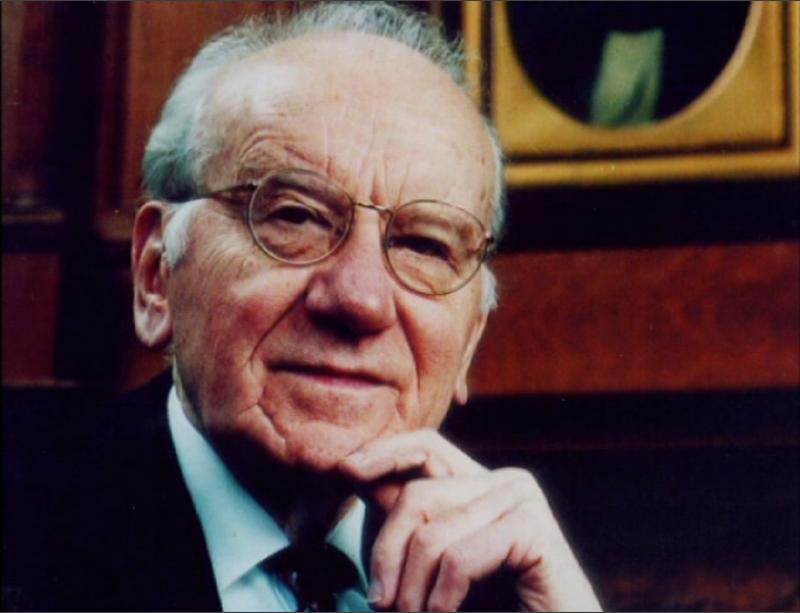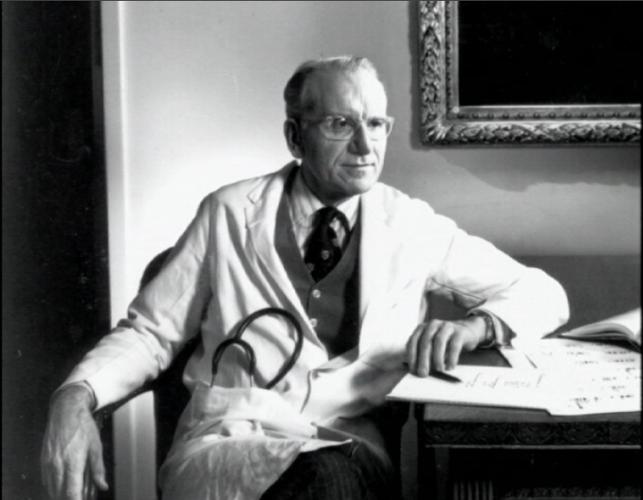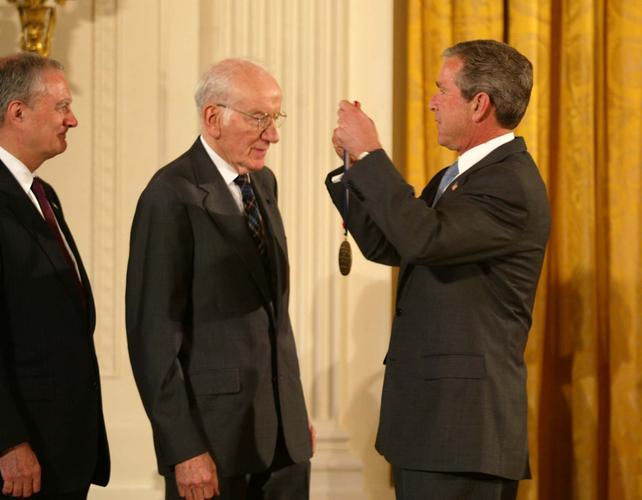Victor A. McKusick is widely known as “the father of medical genetics,” but he later said he might have ended up a lawyer had a severe infection as a teenager not introduced him to the medical community. He was determined to attend the Johns Hopkins School of Medicine — and, after only six semesters of undergraduate study at Tufts University, McKusick was admitted to the school without a baccalaureate degree due to student shortages caused by World War II. He would stay at Johns Hopkins, serving as a Professor of Medical Genetics and Professor of Medicine until his death in 2008.
During his residency training as a cardiologist, McKusick became fascinated by patients’ rare genetic disorders. He dedicated his career to investigating and explaining the link between genetic inheritance and disease. As part of this work, McKusick opened one of the world’s first medical genetics clinics, and was an early advocate for mapping the entire human genome, foreseeing long before his peers its value for understanding the genetic determinants of birth defects. As a result of his lifelong efforts, medical genetics has become essential to the field of medicine, with profound effects for treating all types of genetic disorders.
By Sara Grossman









